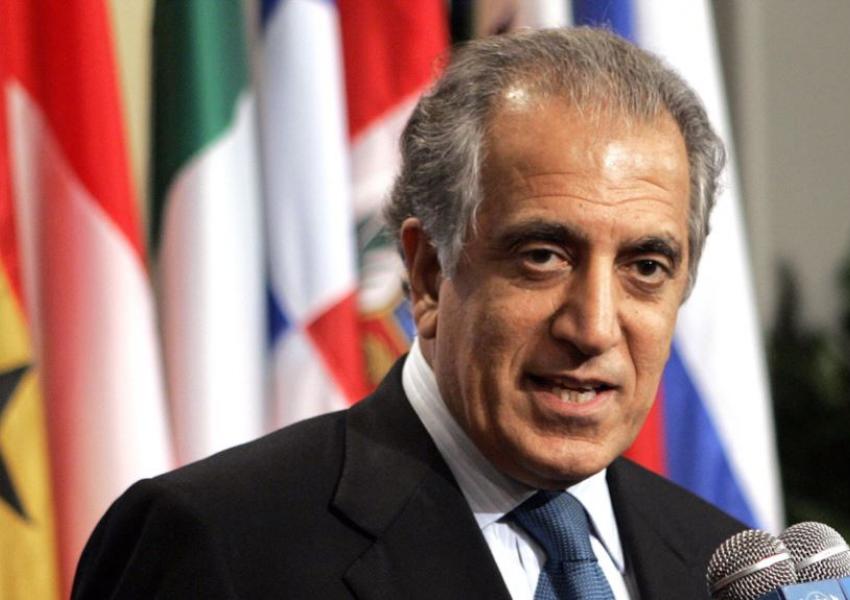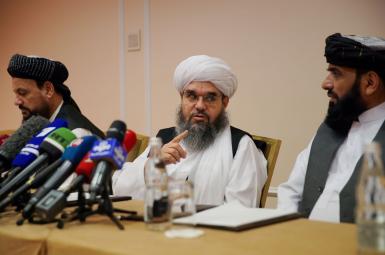
Khalilzad’s Plan, Power Play, and the Election Postponement
Seventeen years after the overthrown of the Islamic Emirate of Taliban, Afghanistan is again at another historical juncture whose result can solve years of war and violence and determine the future of the country.
The next presidential election is scheduled for less than six months ahead; but at the same time, a reschedule in the voting date has been suggested. The suggestion also involves the creation of a temporary government to negotiate with Taliban aiming to assimilate the Taliban, the largest rebel group, in the political processes.
Hence, Afghan political parties and groups are preparing for both scenarios, so they can adapt to ever-crucial American policy towards the country.
Despite the National Unity government insisting on moving ahead with the election as planned, the US has conducted at least three rounds of dialogue with the Taliban in the absence of the Afghan government. Although Taliban had not shown any signs of willingness to enter one on one negotiations, these recent developments raised the expectations for a big national peace plan.
The US government appointed Zalmay Khalilzad two months ago as its special envoy for peace negotiations with the Taliban. Khalilzad is a senior American diplomat with Afghan descent who enjoys a deep understanding of power politics in Afghanistan.
During his recent tenure, he has succeeded in having Mullah Abdolghani, Deputy to Mullah Omar the founder of Taliban, released from prison. He also secured the return of five former leaders of Taliban to their office in Qatar to begin the new rounds of negotiation. All these developments boost hope for a political agreement with the Taliban for peace.
“Khalilzad’s plan”, as it is called in Kabul, comes along with the US softer tone with regard to Taliban. It is said that the US recent moves are because of Trump’s frustration at the stalemate in Afghanistan and his will to withdraw American troops from the country before the American election in 2020.
Trump, as a candidate in the 2016 presidential election, opposed American troops remaining in Afghanistan. As president of the United States, he seeks an agreement between the Afghan government and the Taliban.
“But the most important … [is] reconciliation. And on that, you saw Ambassador Khalilzad has been presented with the portfolio. He’s working it, he — those of you who know him, know him as a force of nature”, Secretary Mattis remarked on October 30 at the United States Institute for Peace.
Thus, if Khalilzad’s chance to go ahead with his plan improves, an election with a 200-million-dollar bill, mostly paid by the US, would be unreasonable to the US administration.
The possible candidates, nonetheless, have been preparing for the upcoming election for the next president of Afghanistan.
Ashraf Ghani, the current president, has increased his travels around the country and made some announcements with publicity in mind.
Hanif Atmar, the former national security advisor, is in negotiations with different parties to establish a campaign team.
Omar Daudzai, former interior minister, has announced his candidacy.
Shaida Mohammad Abdali, former ambassador to India and close to the former president Hamid Karzai, told the media he had been seeking advice from the ‘elderly of Qandahar’ about his possible candidacy.
Abdullah, the Chief Executive, has neither confirmed nor rejected his running for the presidency.
More importantly, the unity of the “Grand National Coalition of Afghanistan” was recently launched, which consists of three influential political parties known as ‘banks for votes and king-makers’.
The National Coalition convened at least three meetings in the last few weeks, attending the first vice president of Afghanistan General Abdul Rashid Dostum, Salahuddin Rabbani acting foreign minister, and second deputy Chief Executive Mohammad Mohaqiq. It is said that they worked on the principles of the coalition.
Iran International sources told us more about these principles: “The system must change to a parliamentary one, the number of vice presidents must increase from two to three and the responsibilities be divided impartially. The president must not be able to disqualify a vice-president. The Chief Executive must change to a prime ministry and have three deputies without distinction of the qualifications”.
The coalition has yet to reach a consensus on a candidate, but they have been negotiating for one.
Noor Rahman Akhlaghi, a member of Jamiat Islami, told Iran International: “our policy is to focus on agendas, and not on individuals. We will consider people who are suitable for our agenda, and we have to make sure they will keep their promises afterward”.
He rejects the possibility of supporting Ashraf Ghani, the current president, and adds: “Mr. Ghani is not a person who promises, and then keeps them. This was proven last time”.
Other sources suggest that it is unlikely that they support Abdullah Abdullah, the current Chief Executive. But they have been talking with Hanif Atmar, former national security advisor, and Omar Daudzai, former interior minister.









